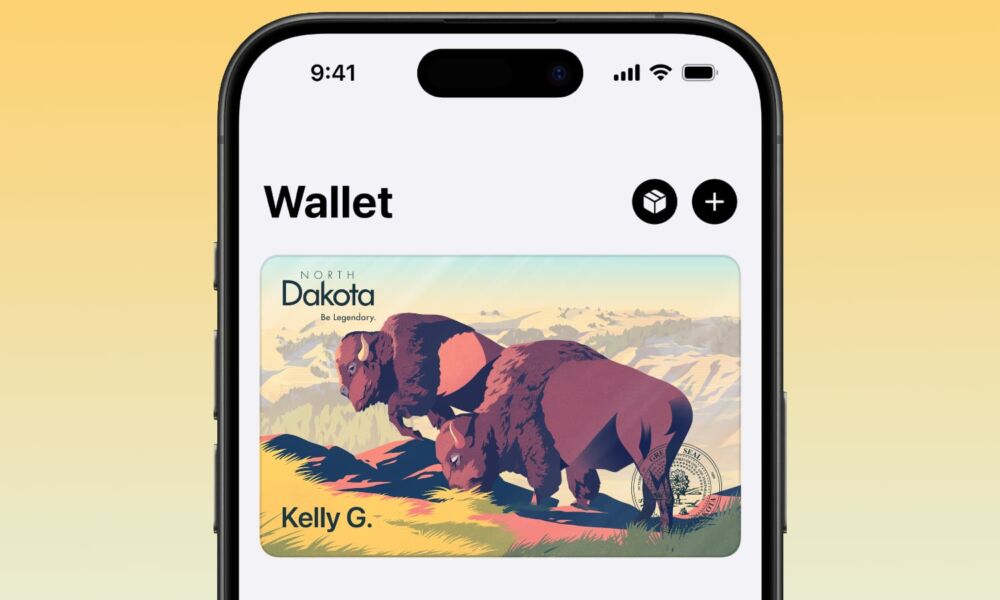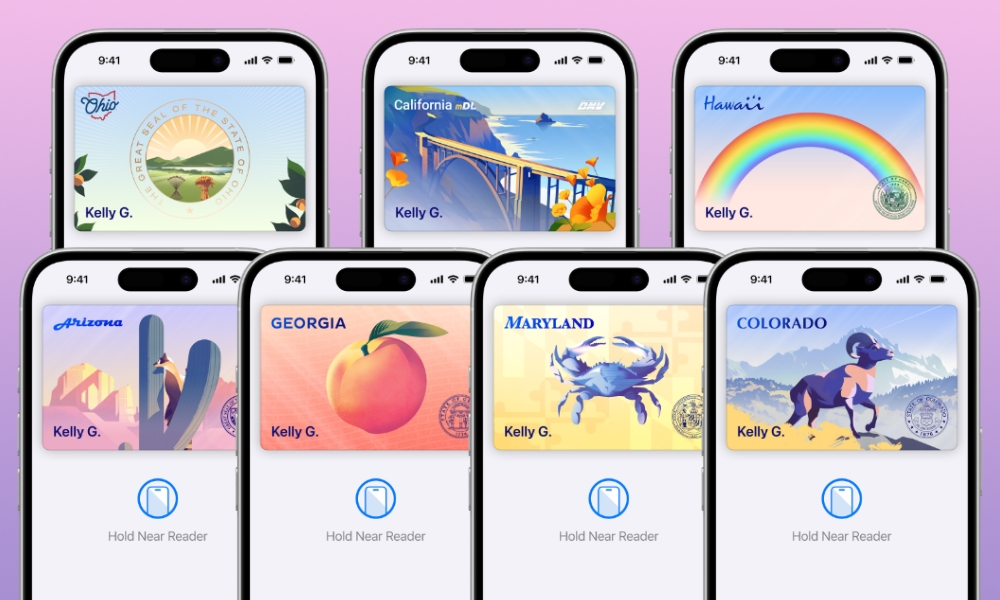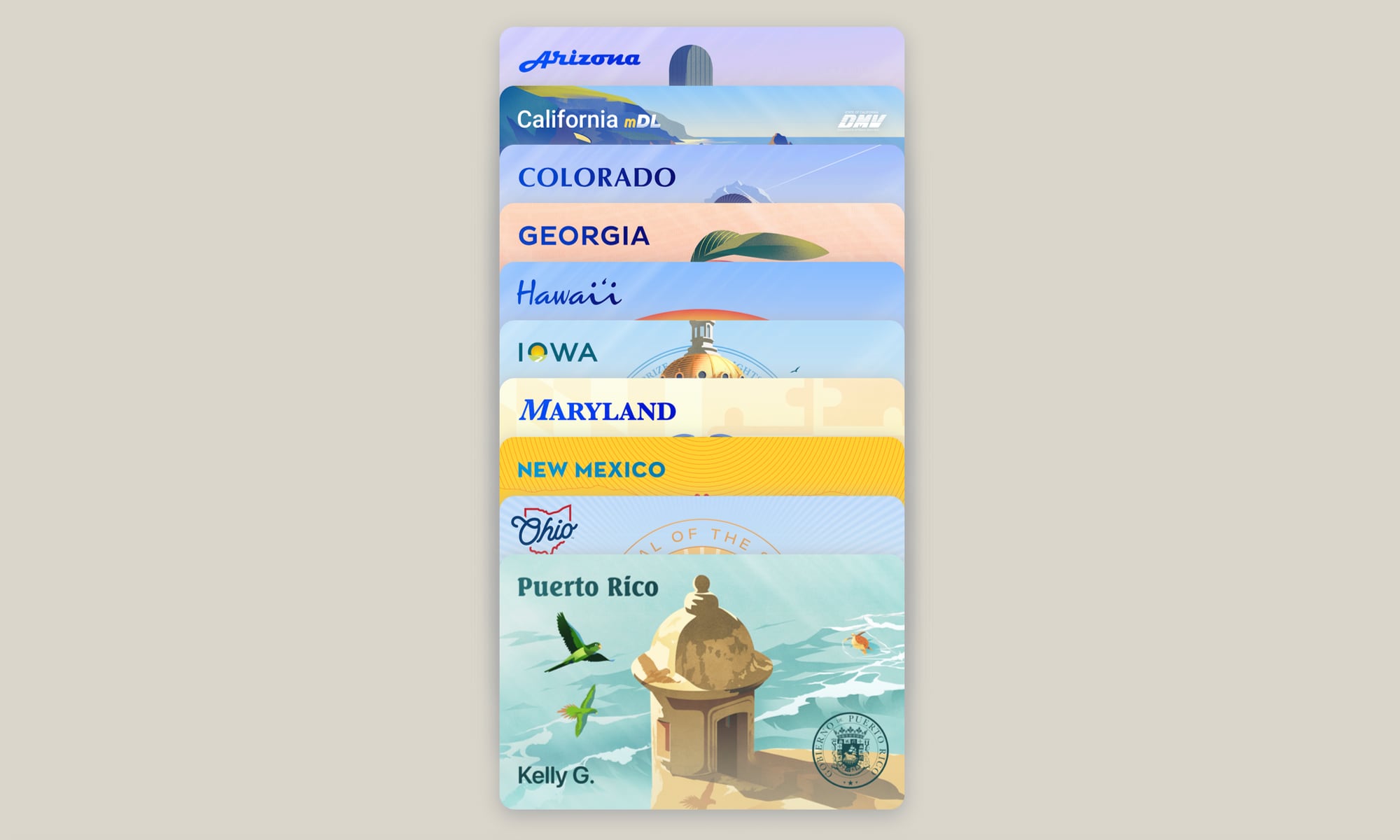Digital Driver’s Licenses Expand to Eleventh State as North Dakota Joins In

Toggle Dark Mode
Residents in North Dakota will soon be able to add their driver’s licenses or state IDs to Apple Wallet, as it’s set to become the eleventh US state to join Apple’s Digital ID initiative.
While we remain convinced that it’s only a matter of time before digital driver’s licenses are everywhere, the expansion seems to have been progressing at a somewhat glacial pace. Of course, we probably shouldn’t be surprised, as it’s moving at the speed of government.
There are plenty of bureaucratic hurdles to overcome, not only in digitizing official identification cards but also in ensuring that these digital versions are actually useful. However, there’s also the willingness of state and other regional governments to spend the time and effort to get on board.
That second part likely explains why it took almost a year for Apple’s Digital IDs to begin gaining traction. After announcing Digital ID during its 2021 Worldwide Developers Conference (WWDC), Apple rolled out the feature more or less on schedule in iOS 15.1 that fall, proudly announcing that eight US states had signed onto the initiative: Arizona, Maryland, Georgia, Iowa, Connecticut, Kentucky, Oklahoma, and Utah.
Of course, “signed on” isn’t the same as “have implemented.” Although Apple’s Digital ID technology is based on an open standard, implementing it is a challenging task, and we knew from the start it would be a long road before you’d be able to leave your physical ID behind.
Even Apple understood that. The initial rollout was limited to using the new digital driver’s licenses at TSA checkpoints, but the first handful of airports didn’t adopt it until February 2022. Still, the TSA didn’t need to hurry, as it wasn’t until March that Arizona became the first state to begin issuing digital driver’s licenses for Apple Wallet.

Maryland showed up a few months later, followed by Colorado, which ironically wasn’t on Apple’s original list of eight states. Two of the others — Georgia and Iowa — joined in 2023 and 2024, respectively, while the other four remain missing in action even now. Technically, Utah has adopted digital driver’s licenses, but it snubbed Apple and threw its hat in exclusively with Google Wallet.
In other words, two years after Apple added Digital ID support in September 2021, only three states had joined, and one of those wasn’t even on the original list. Thankfully, things ramped up in 2024, perhaps because digital driver’s licenses began to gain momentum on Android. This may have convinced more states to invest in the technology once it was no longer exclusive to the iPhone.
From July to December last year, five additional states joined the initiative — Ohio, Hawaii, California, Iowa, and New Mexico — as well as Puerto Rico. Apple also announced last September that Montana and West Virginia had committed to support, although so far, only Montana has turned the key on it.
In the September issue of its On the Move newsletter, North Dakota’s DOT said that Mobile IDs are coming soon, although it didn’t explicitly name any platforms like Apple or Google:
And most recently, Mobile IDs will be available to North Dakota drivers within the next month and enables North Dakotans to add a driver’s license or state ID to a digital wallet. This allows them to seamlessly and securely present their IDs using their mobile device.
However, Apple briefly added North Dakota to its list of participating states on Friday, and although it no longer appears on the current list, Apple left the footnote behind, which also notes that the North Dakota Department of Transportation (DOT) will charge a $5 fee to obtain a mobile driver’s license, which will apparently be charged during the process of adding the digital ID to Apple Wallet.
Apple has also committed to adding support for digital US passports in 2025, which could help fill the gap for the 39 states that have not yet rolled out digital driver’s licenses. Still, it’s essential to remember that digital IDs aren’t yet a complete replacement for physical identification. Businesses are only gradually adopting scanners for things like age verification, and acceptance is far from universal. More importantly, all participating states still require you to carry a physical driver’s license when driving, and you’ll still need a physical passport for international travel.








